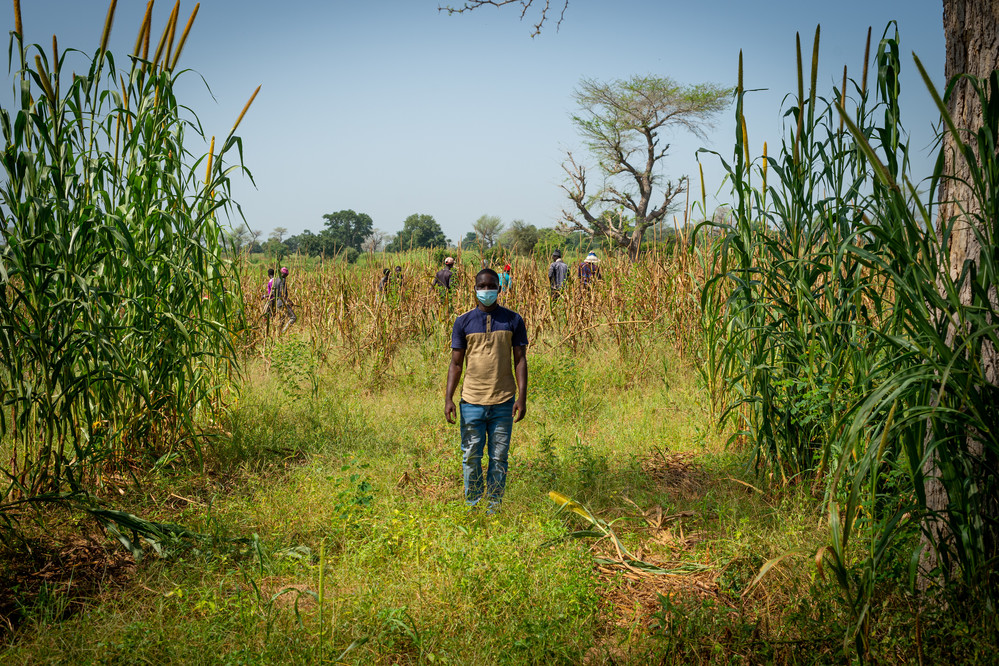The Uganda Agribusiness Alliance (UAA) is an apex body for the agribusiness industry in Uganda. The organization brings together stakeholders, including farmer groups, agribusiness SMEs, financial institutions, government agencies and other industry players, to develop the industry. The COVID-19 Business Info Hub caught up with UAA’s Chief Executive Officer Edward Katende to learn more about UAA’s role in promoting industry competitiveness and recovery mechanisms for agribusinesses in light of COVID-19.

Photo: UAA
What is the role of your organization in policy and advocacy for the agribusiness industry?
Uganda Agribusiness Alliance (UAA) advocates for big decisions by the various stakeholders to make the Ugandan agri-food industry globally competitive and attractive for investment. UAA shows different stakeholders interested in an investment where the real money is and how to invest. The organization supports processes to increase industry financing. We are supporting the Ministry of Finance Planning and Economic Development (MOFPED) in developing a policy on agricultural financing. The policy will create an enabling environment to support lending and savings for industry players and enable the unbanked in the subsistence economy to participate in the financial industry. Here are the pathways for UAA’s policy and advocacy work:
-
Evidence building: generating evidence that the government uses to improve policies and regulations on macro policy issues.
-
Micro policy reform: working with the government to articulate alternative policy reform options and analyze the costs and benefits of reforms. UAA also provides technical assistance and support to the government to design and roll out the reformed policies.
-
Advocacy: driving national advocacy that advances agribusiness transformation narratives.
-
Alliance building: cultivating partnerships with key players and positioning UAA as a partner for agribusiness transformation policies.
UAA also promotes industry competitiveness by supporting industry players to produce quality products. The organization guides agribusinesses to understand and comply with the required food safety and quality standards. For example, we are currently running a project for our members in the fruits and vegetable sub-industry to meet the sanitary and phytosanitary standards (SPS) for export to Europe. The project strengthens actors’ capacity along the horticultural value chain through training workshops and streamlining inspection and export certification systems.
We are also an honest broker in the industry. As independent players in all our work, we come in to help different interested parties do business better.
What challenges is the industry facing during this period?
-
The biggest challenge is supply chain management. The magnitude of this challenge varies depending on a specific value chain and the particular segment of the chain. We witnessed delays in transportation both by road and air cargo for exports because of the restrictions in place.
-
Businesses face working capital constraints because of reduced sales and delayed payments which affect operational efficiency. In addition, companies that require the physical presence of staff are incurring additional costs. Business owners must find onsite accommodation or transport the team to and from work, which is an additional cost.
-
The demand and price for agricultural products have reduced over time. Therefore, businesses are struggling to break even. Last year, we saw several poultry farms releasing their birds to die and throwing away eggs because they had no market.
-
Loan disbursements are hampered by the inability to complete security perfection given that the land office and others have limited their operations.
Therefore companies must quickly adapt to fit into the new dynamics that the COVID-19 has brought to the business space.
What recovery mechanisms are needed to support agribusinesses during the pandemic?
There are things both businesses themselves can do during the pandemic and measures government and other stakeholders can take in the industry. Recovery starts with having a healthy and safe population. Government measures ensure that the population is safe; however, these measures also affect the industry.
Here is what agribusinesses need to do in the current environment:
-
To run operations amidst these uncertainties, businesses need business continuity plans and the funds to implement them. That kind of financing is hard to access now, so we call upon financial institutions to develop more flexible ways of financing the agricultural industry.
-
For their part, businesses need to embrace digital tools and e-commerce to have a broader reach in the current situation. As enterprises work to adopt information and communications technology, it also needs to be made affordable. Today, we are pushing for safe and inexpensive digital transactions. We also need to have more agri-technology companies supported to scale innovative solutions in the industry.
-
Agribusiness SMEs need access to reliable markets to recover. During this pandemic period, the government must focus on buying Ugandan products. As the biggest buyer, the government needs to start buying from small businesses and relax procurement rules for these businesses to qualify. It will help boost the much needed local demand.
-
SMEs should embrace opportunities that exist during this season. First, since agriculture must continue to feed the population, there is an opportunity to focus on producing and supplying healthy food to the market. Second, agribusinesses should adapt their business models to fit the new circumstances while being mindful of the costs involved, well aware that COVID-19 will be here for some time.
To our members, partners and stakeholders, we need to work together as an industry. If we ever wanted to work together, this is the time to leverage each other’s strengths and advantages. So, let us pool our resources and expertise, put them together, and fight for each other to ensure survival. Finally, businesses need to be flexible. If, for example, a company owes you money but is struggling to pay, put your heads together to come up with a way to resolve the situation for mutual benefit. Businesses must survive!
This article was originally published by UAA.

